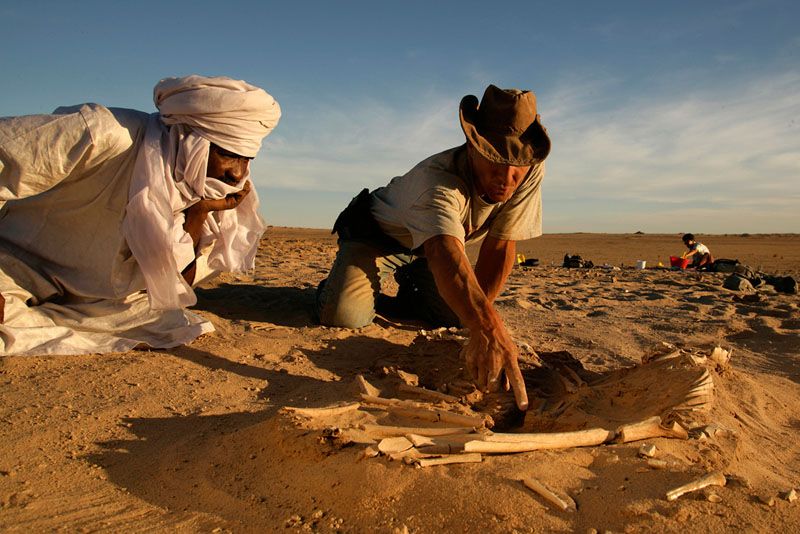Archaeology, from Greece, archaeo which means "ancient" and logos, "knowledge".
Alternative name of archaeology is the study of material culture. Archaeology is the study of culture (human) the past through the study of systematic data bendawi.
Systematic studies include discovery, documentation, analysis, and interpretation of data artifacts (bendawi culture, such as stone axes and the building of the Temple) and the ekofak (environmental objects, such as rocks, the form of the Earth, and fossils) or features (the artefaktual cannot be removed from its place (archaeological site). A typical research techniques is the archaeological excavation (excavation), though the survey also get a pretty big portion.
The purpose of the archaeological variety and be a long debate. These are called with the paradigm of archaeology, namely compiling a history of culture, understanding human behavior, as well as understand the process of culture change. Because it aims to understand the culture of the human beings, then this knowledge included in the Humanities group.

Nevertheless, there are various auxiliary sciences are used, among others, history, anthropology, Geology (with science about the Earth-forming layers into the underlying relative age of an archeological findings), geography, architecture, paleoantropologi and bioantropologi, physics (among others with carbon c-14 to get absolute pertanggalan), the science of metallurgy (to get the elements of a metallic objects), and Philology (learning the old script).
Current archaeology covers various fields concerned. For example, the discovery of the corpses buried will interest experts from various fields to review about the clothes and the type of material used, the shape of ceramics and how to spread the belief through what was buried along with the dead body, the chemical expert which is able to determine the age of minerals through ways such as carbon measurement methods 14.
While genetic experts who want to know the movement displacement of early humans, the DNA is investigated.
Specifically, the study of the archaeological cultures of the past, which is already old, both in prehistoric times (before known writings), as well as on the period of history (when there is evidence in writing). In its development, archaeology can also learn the culture of the present, as popularized in the cultural studies of the modern bendawi (modern material culture).
Because it depends on the objects a relic of the past, then badly in need of preservation of archaeological objects such as data sources. Therefore, later developed other disciplines, i.e. resource management Archaeology (Archaeological Resources Management), or more broadly is a cultural resource management (CRM, Culture Resources Management).
REFERENCE
Source:
pelajaran-lengkap.blogspot.com


Good post?! Nice to meet you! Please followback!
Downvoting a post can decrease pending rewards and make it less visible. Common reasons:
Submit